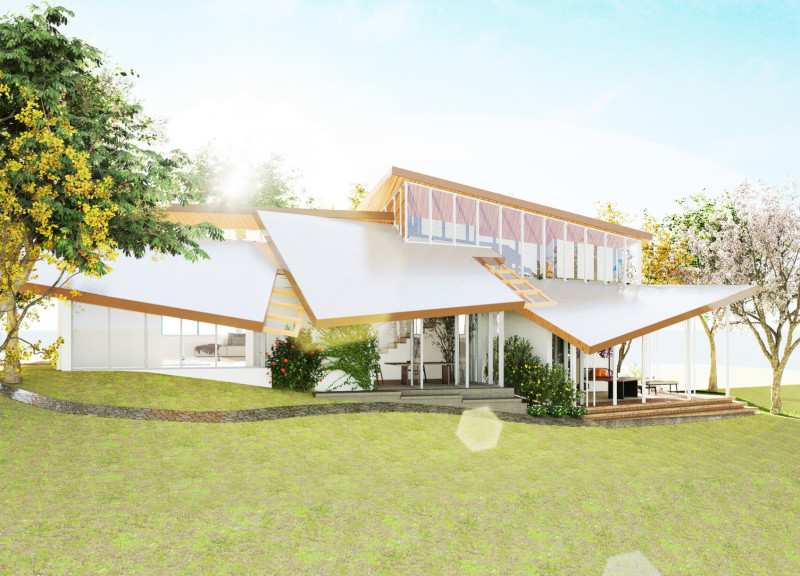5 key facts about this project
At its core, the Portugal Olive Guest House represents a bridge between modern architectural principles and traditional Portuguese agrarian culture. The project functions as both a guest house and a community center, offering a range of experiences that include culinary workshops, cultural events, and immersive activities focused on olive production and tasting. This multifunctionality is central to the design, creating a versatile space that adapts to different uses and fosters interaction among guests.
Architectural elements in the design reflect a commitment to sustainability and ecological integrity. The building's orientation maximizes natural light, reducing the need for artificial lighting while enhancing the indoor ambiance. Features such as overhanging rooflines and strategically placed windows allow for natural ventilation, effectively regulating indoor temperatures and minimizing reliance on mechanical cooling systems. This attention to environmental efficiency not only reduces operational costs but also encourages a lifestyle that respects local resources.
The materials chosen for the construction emphasize a connection to the natural surroundings. Concrete serves as a strong structural element, providing durability and stability. In contrast, warm timber cladding and accents soften the build and blend it seamlessly into the landscape. Large panels of glass create a transparent connection to the outdoors, providing unobstructed views of the olive groves and allowing natural elements to permeate the interior spaces. The use of metal further contributes to the modern aesthetic while ensuring longevity and low maintenance.
Unique design approaches enhance the guest experience. For instance, the undulating roofline is not only an aesthetic choice but also serves functional purposes, such as effective rainwater harvesting. This innovative design element showcases a commitment to resource management and reinforces the connection to nature. Additionally, communal spaces are designed with flexibility in mind, allowing them to be easily reconfigured for group gatherings or more intimate settings. This adaptability supports the diverse needs of guests and encourages social interaction, making the guest house a vibrant hub within the olive grove setting.
One of the distinctive aspects of this project is its integration of local culture, particularly through elements like an olive oil tasting room. This space not only celebrates local traditions but provides an educational experience that allows guests to engage directly with the region’s heritage and agricultural practices. The incorporation of such culturally significant features highlights the project’s aim to serve as an immersive destination, rather than merely a place to stay.
Overall, the Portugal Olive Guest House stands as a testament to contemporary architectural design that values sustainability, community, and cultural engagement. Through careful consideration of materials, landscape integration, and multifunctional spaces, the project achieves a balance that respects both the environment and the traditions of the region. For those interested in architectural plans, sections, and designs that reflect thoughtful consideration of place and purpose, exploring this project in greater detail can provide valuable insights into modern architectural ideas and practices.


























